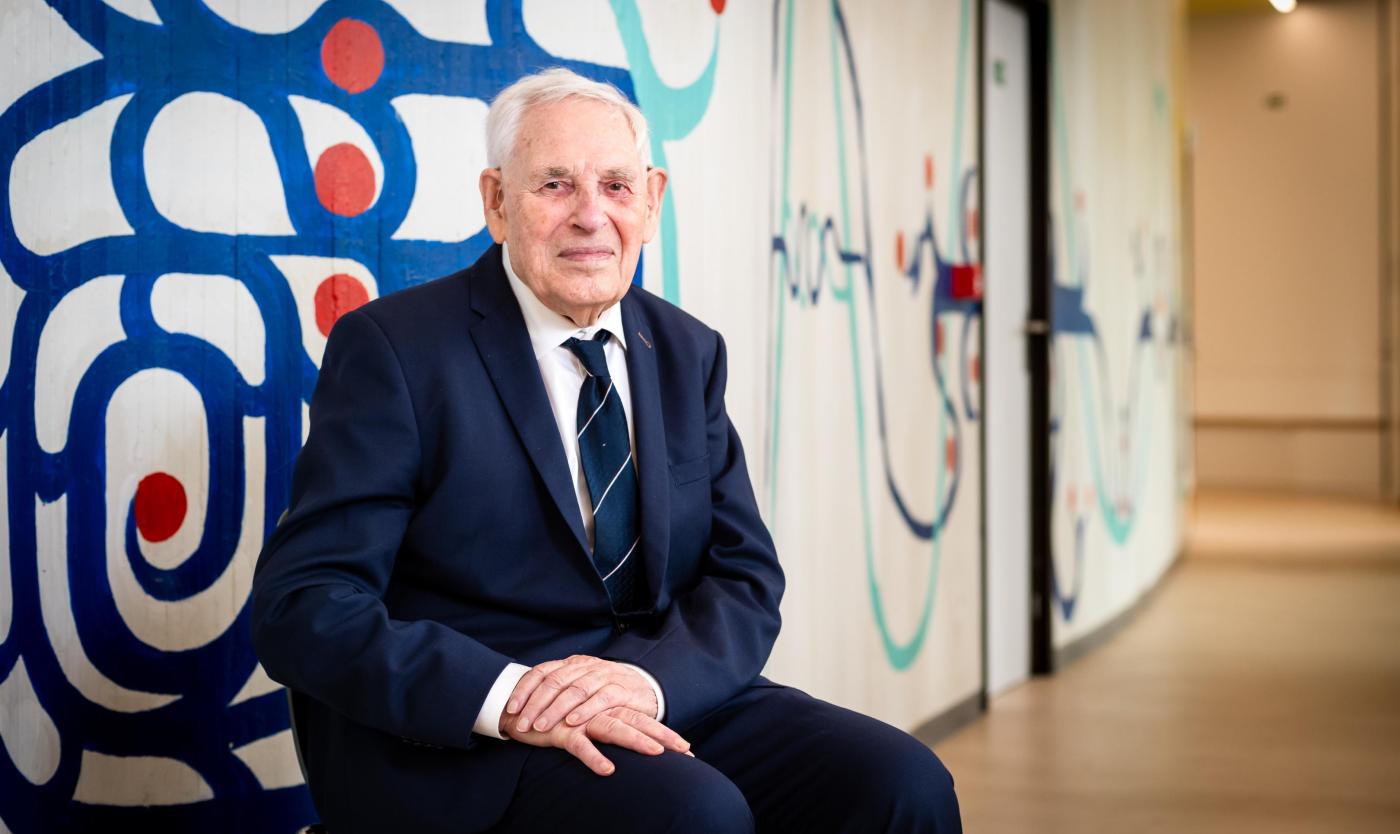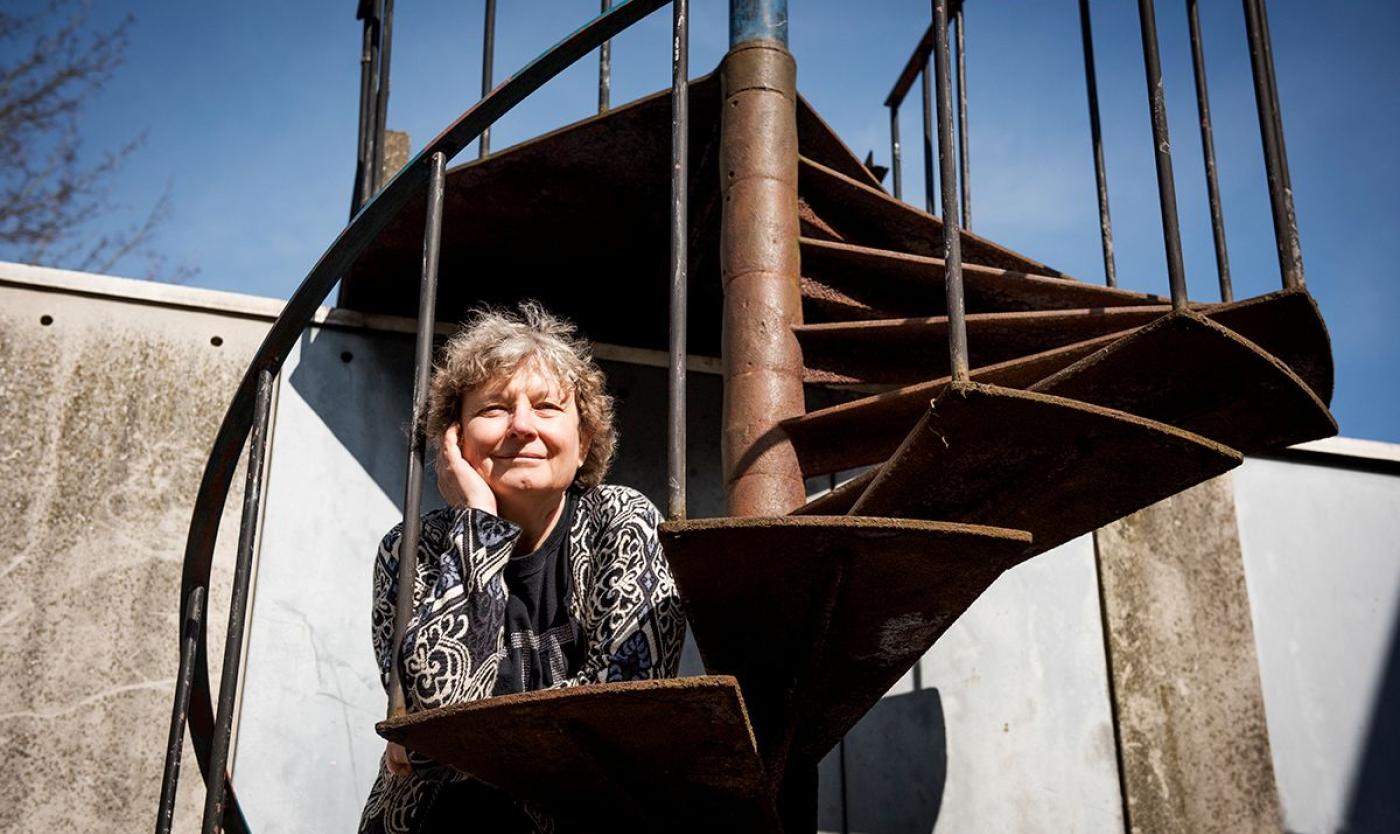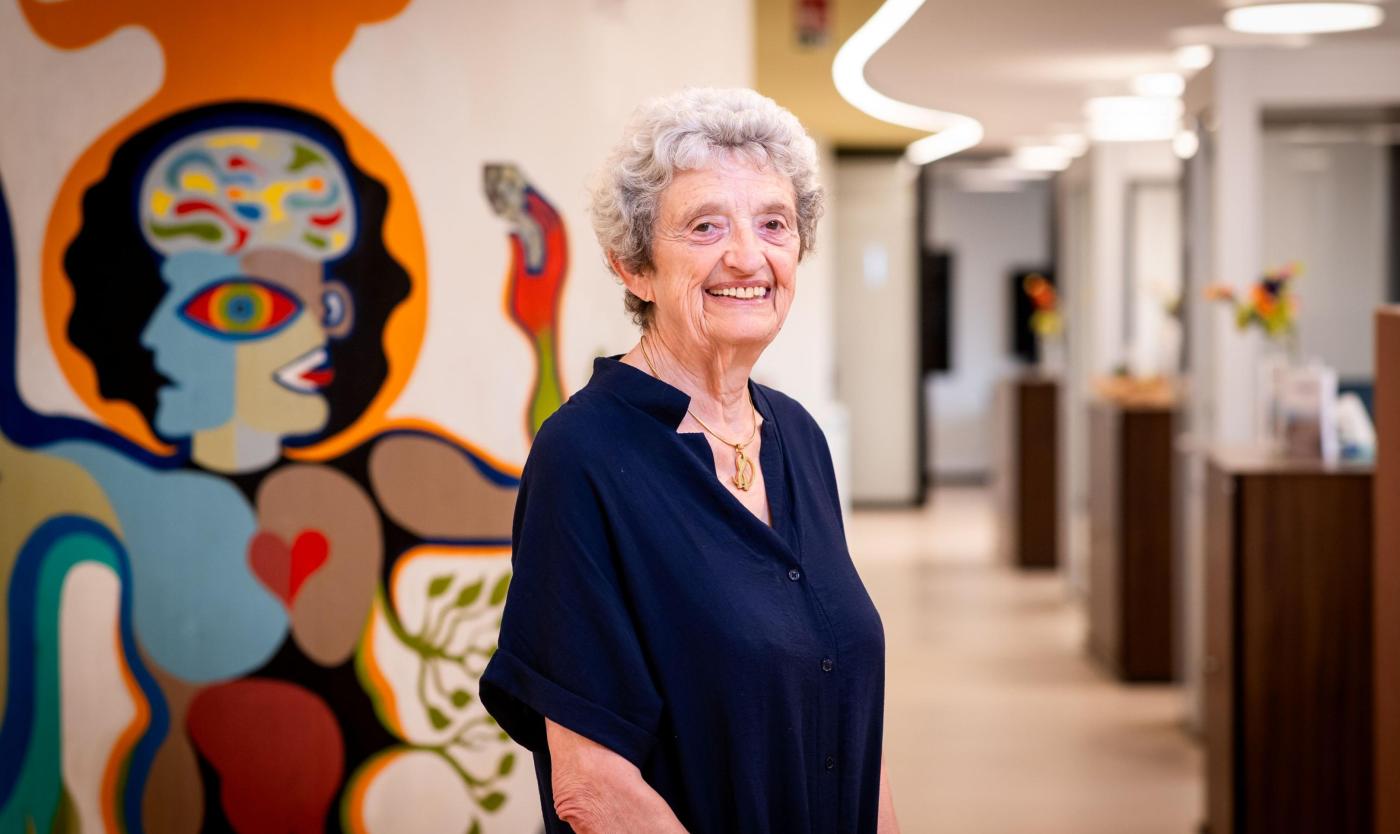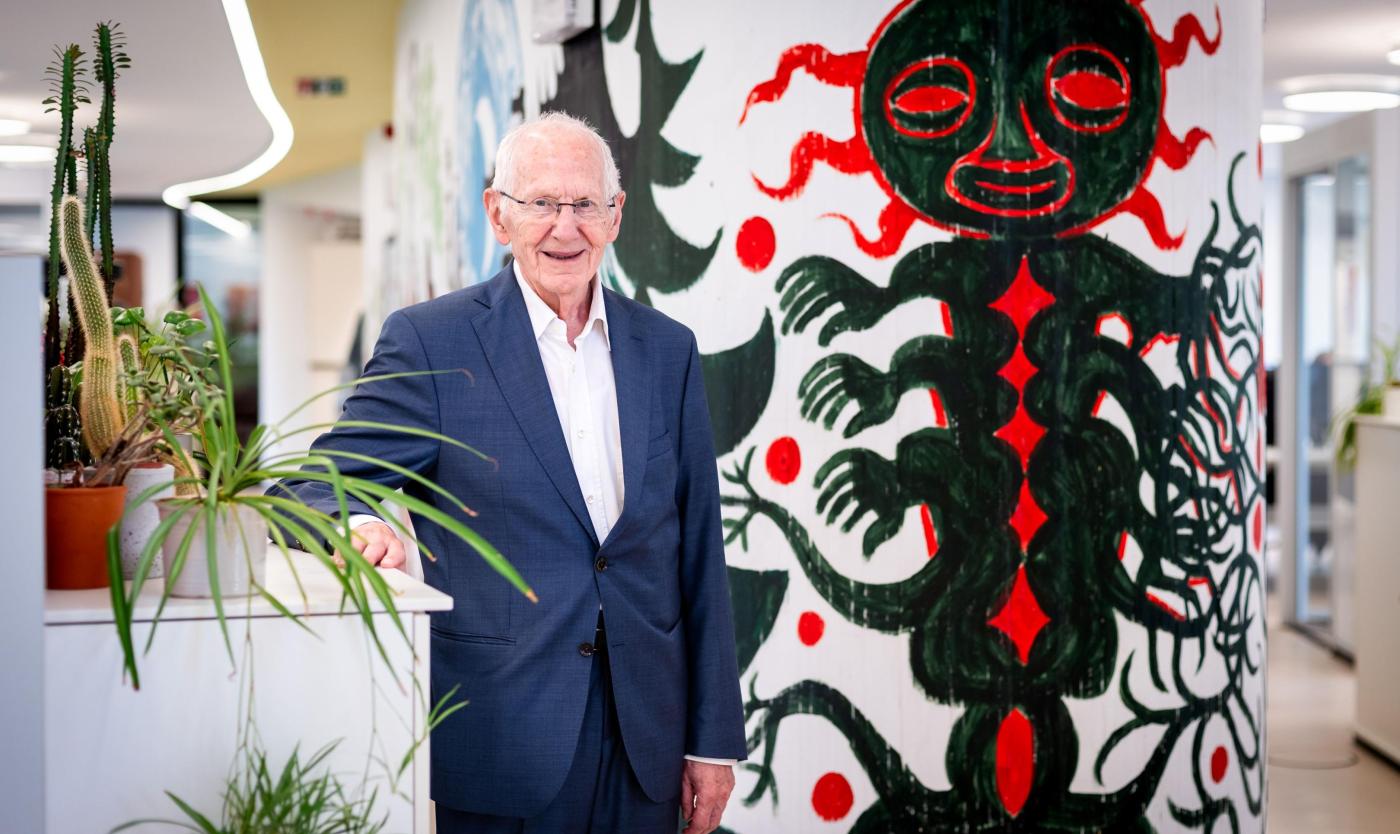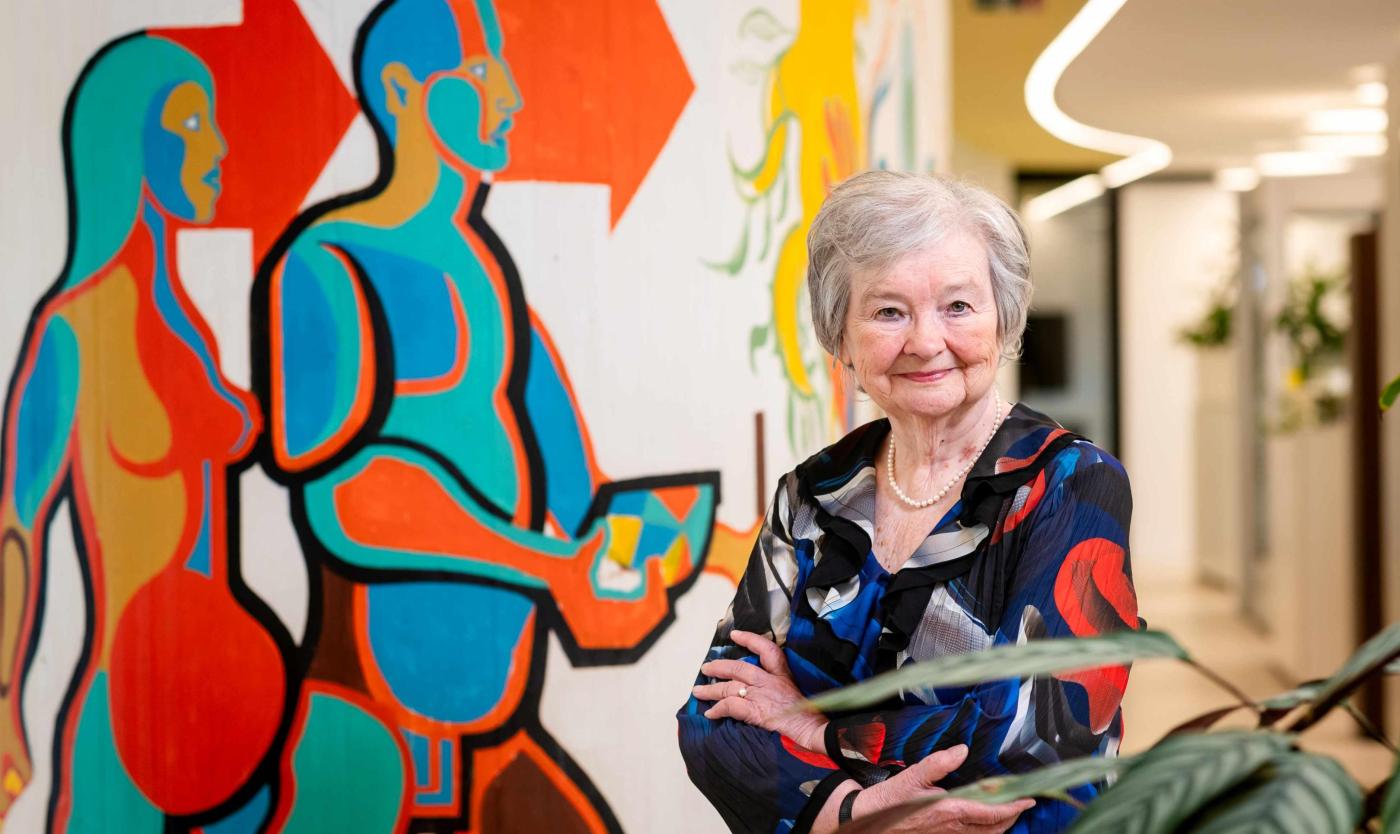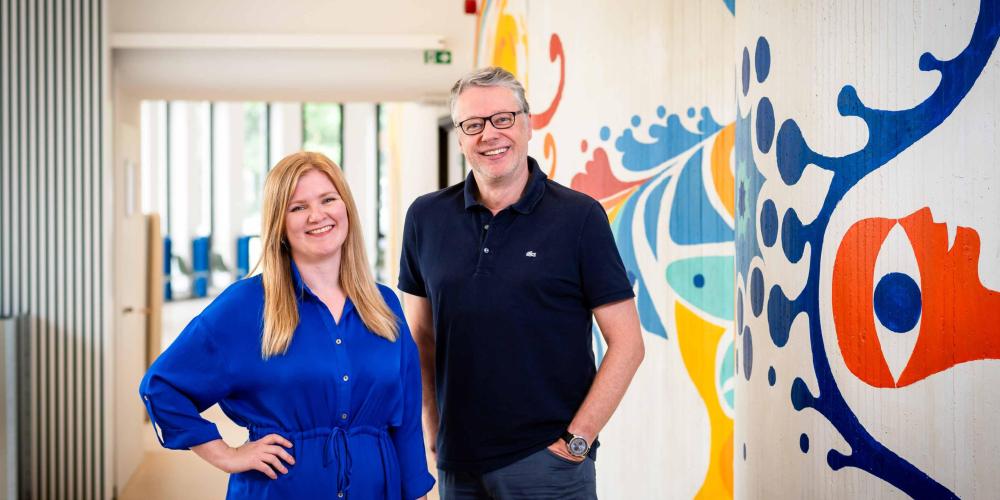
In the field of research, VUB has always played a pioneering role, often against the prevailing tide. With a new set of research awards, Vice-Rector Pieter Ballon wants to strengthen the university’s research position even further. “Through this awards policy, we aim to create a climate in which the pioneering spirit of our researchers is truly recognised and rewarded.”
Why introduce these new research prizes?
“VUB has always been a university of pioneers. It takes a trailblazing mentality to be a Flemish university in Brussels, or a secular university in Flanders. In terms of research too, VUB has frequently taken the lead – and continues to do so. Just think of a field like artificial intelligence: we’ve been conducting research into AI for more than 40 years, making us the first in continental Europe.”
“Being a pioneer in research often means standing alone, with outcomes that are far from certain. If you want to encourage ground-breaking research as a university, you need to foster a climate where such work is actively supported and rewarded. For me, that’s exactly what this new awards policy does. Alongside the structural measures we’ve already put in place to improve support for research groups and infrastructure, this is one of the cherries on the cake. And that has only been possible thanks to the collaboration with the VUB Scientific Support Fund, which I’d like to warmly thank for making this financially feasible.”
There will be awards for early-career and mid-career researchers, divided across three fields. How is that structured?
“Of course, VUB already has a number of awards. Think of the EOS Prizes for young scientific talent or the faculty prizes for outstanding master’s theses. What we’re doing now is building a whole new framework on top of that – prizes for researchers at different stages of their careers.
We distinguish between researchers with a maximum of 10 years’ experience, and those with 10 to 25 years. That felt important. Otherwise, it becomes an uneven contest, where recognition is likely to go mainly to those further on in their careers. But it’s just as important to give an early boost to those at the start of their research journey.
The division into three clusters – Humanities, Natural & Physical Sciences, and Life Sciences – mirrors the way research policy is structured at VUB, as well as at many other universities. Researchers already work within faculties and groups, where they hopefully get peer recognition. But these prizes operate more broadly. It’s an extra incentive to be noticed at the level of an entire cluster.”
"It provides an extra incentive when you are recognised as a researcher within such a large cluster"
There’s also the new Sylvain Loccufier Prize – a career award for achievements with social impact, in line with VUB’s values. Could you explain more?
“We already have a career award – the Roger Van Geen Prize, for exceptional scientific achievement. The most recent recipient was Jan Steyaert, our leading scientist in structural biology. The Sylvain Loccufier Prize sits alongside that, and will be awarded to researchers who have specifically contributed to VUB’s societal mission and free-thinking values. Scientific excellence remains key – you can’t have impact without excellence – but with this new prize we’re adding another dimension: societal relevance.”
All the prizes are named after pioneers from the past. Why was that important, and how were they chosen?
“One pioneer leads to another. The idea is that prize-winners themselves become role models for others. By linking the awards to pioneers from the past, the circle is complete – generations connected to one another. The names were proposed by the steering group of the Scientific Support Fund. They are, quite literally, the university’s memory. I’m delighted we can keep some VUB legends in the spotlight this way. I’m also relieved I wasn’t the one having to make the final choices – there were plenty of equally deserving figures! (laughs)”
Three of the pioneers the new awards are named after are women. That’s hardly a coincidence?
“Of course not. Here too, VUB has been a pioneer. Thankfully, other universities have been catching up, but we’ve always led the way in gender equality. Since pioneers serve as role models, it was obvious to us that gender balance had to be reflected. And finding female pioneers was by no means a challenge – quite the opposite.”
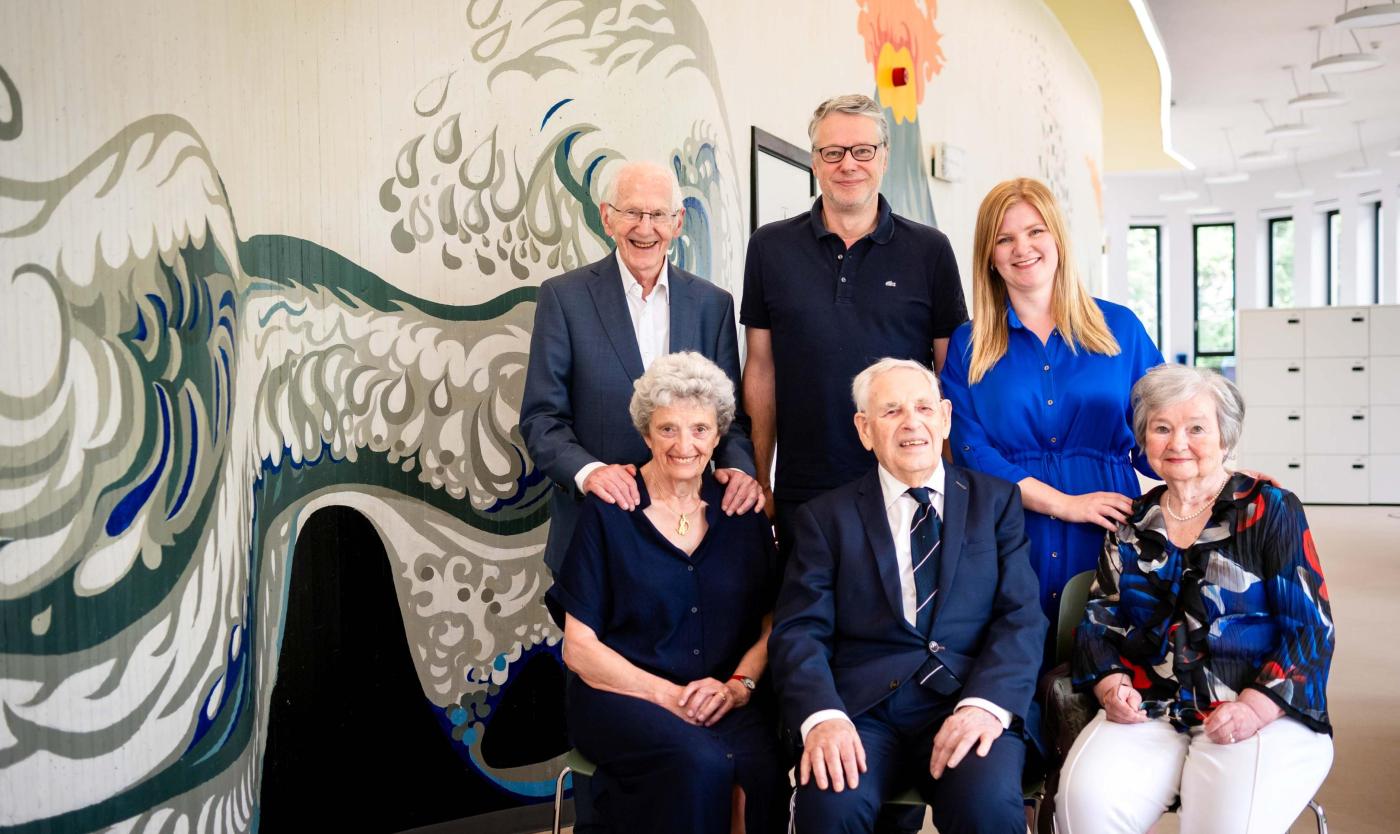
From top to bottom and left to right: André Van Steirteghem, Pieter Ballon, Elisabeth Rabaey, Inge Liebaers, Silvain Loccufier, Els Witte.
"By linking the awards to pioneers from the past, generations are connected"
Is there money associated with the prizes?
"It is not the monetary value of the prize that constitutes its greatest value. It is about the feeling of being noticed, the recognition that you are doing something valuable and that you are supported in doing so. But there is indeed a prize fund: 5,000 euros for the prizes for early-career researchers and 10,000 euros for the mid-career prizes."
Where does the prize money come from?
Elisabeth Rabaey, Head of Fundraising at VUB
“The Scientific Support Fund has been in existence for more than 50 years. In the past, the fund has raised a lot of money. These funds are managed in our investment portfolio and we can use the returns to finance the prizes. In addition, there is a large group of people who are fond of the VUB, mainly alumni, and from whom we have been raising funds for about ten years. Through donations, they contribute to the Scientific Support Fund. Many of them are very loyal supporters. Every year, they give the Scientific Support Fund a helping hand."
"Bequests also remain popular. People want to make an impact after their death. With a bequest to the VUB, they can do just that. Incidentally, people do not do this solely to obtain a tax advantage for their loved ones. In Flanders, the principle of dual bequests was abolished in 2021. There is no longer any inheritance tax advantage. People who donate money through a bequest do so out of altruism, because they consider the values of the VUB to be important."
Only one person can win an award. How do you ensure this motivates rather than discourages those who aren’t recognised?
“We’re lucky to be a university where people know one another and can genuinely share in each other’s success. I hope these prizes inspire rather than disappoint. Being an academic always involves rejection – that’s one of the first lessons. Your first paper won’t be accepted by that journal or at that conference. The first draft of your PhD will come back covered in red marks. Not every funding proposal will succeed. That’s part of academic life. What we teach our researchers is that ‘no’ doesn’t mean you can’t go on – or that your abilities or topic aren’t valid. Of course, it’s easier said than done, but rejection should always be a learning moment. And it shouldn’t stop us from celebrating our successes a little more.”
What role have prizes played in your own career?
“For me, competitive research grants have played a bigger role than prizes. But it’s always a pleasure to win a ‘best paper award’ at a conference, or an honourable mention when a journal article is frequently cited or downloaded. Those moments often come as a team, and we make a point of celebrating them together. Recognition provides direction – it signals: ‘Keep going in this area.’ A few years ago, I also received the prize for societal valorisation, linked to my work as a Smart City ambassador. That recognition – that the societal impact of my work mattered – was a real boost.”
About the new science awards
In 2025, the VUB launched a new awards policy for research, in collaboration with the Scientific Support Fund. Alongside the existing Roger Van Geen Prize for outstanding scientific careers and the Ignace Vanderschueren Prize for the best doctoral thesis, which are already awarded by the Vice-Rectorate for Research, seven new prizes have been introduced, named after pioneering figures from VUB’s past. With this policy, the university seeks to recognise excellent scientific work at every stage of an academic career.
An overview
- Hilde Bruers Award – Life Sciences (young researchers, max. 10 years of seniority)
- Paul De Vroede Award – Human Sciences (young researchers, max. 10 years of seniority)
- Ingrid Daubechies Award – Basic, Natural and Applied Sciences and Bioengineering Sciences (young researchers, max. 10 years of seniority)
- Franz Bingen Award – Basic, Natural and Applied Sciences and Bioengineering Sciences (mid-career researchers, 10–25 years of seniority)
- Liebaers–Van Steirteghem Award – Life Sciences (mid-career researchers, 10–25 years of seniority)
- Els Witte Award – Human Sciences (mid-career researchers, 10–25 years of seniority)
- Sylvain Loccufier Award – career award for researchers who combine scientific excellence with social impact in the spirit of the values of the VUB
Procedure
The Roger Van Geen, Hilde Bruers, Liebaert–Van Steirteghem, Franz Bingen and Sylvain Locufier Prizes will be awarded biennially from 2026 onwards. The Ignace Vanderscheuren, Paul De Vroede, Els Witte and Ingrid Daubechies Prizes will follow the same rhythm from 2027. The call for applications takes place in September, with 15 December as the final submission deadline. Files are evaluated by the Bureau of the Research Council or by an ad hoc committee (for the Sylvain Loccufier Prize). The Scientific Support Fund makes its final decision by 30 March, and the award ceremony takes place before 30 May.
The prize money is €5,000 for young researchers and €10,000 for mid-career researchers, in each case in the form of a working credit. The Sylvain Loccufier Prize does not involve a cash prize, but a work of art.
View the Vice-Chancellor's call for 2025(through WeAreStaff)
*For medical reasons, it was not possible to interview Prof. Emeritus Franz Bingen in time for this series.
